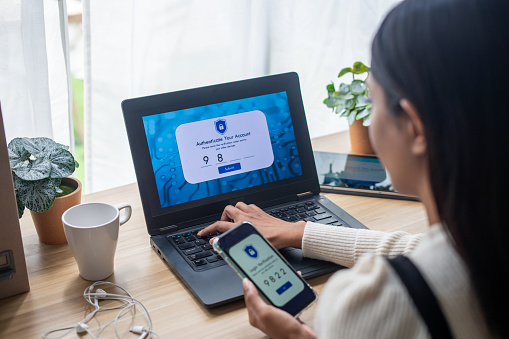2 min read
Protecting Data: Cybersecurity Breaches & Prevention
Cybersecurity Breach: Protecting Digital Frontiers against VulnerabilitiesIntroductionIn today's interconnected world, cybersecurity breaches have...
3 min read
 The Amazing Team at Force One
:
Mar 8, 2024 12:00:00 PM
The Amazing Team at Force One
:
Mar 8, 2024 12:00:00 PM
Mobile app security risks can pose a significant threat to your personal and sensitive data, especially in the fast-paced digital landscape of the USA. It is crucial to understand the various risks associated with mobile app usage to effectively protect your information. Some common security risks include:
Malware and Viruses: Mobile apps can be a gateway for malware and viruses, compromising the security of your device and data.
Data Breaches: Weak security measures in mobile apps can lead to data breaches, where unauthorized individuals gain access to your personal information.
Insecure Data Storage: If mobile apps store data insecurely, it can be easily accessed by hackers or cybercriminals.
Phishing Attacks: Mobile apps can be used to trick users into revealing their sensitive information through deceptive techniques.
To mitigate these risks, it is important to stay informed about the latest security threats, use trusted apps from reputable sources, and implement strong security measures on your device.
Another important aspect of understanding mobile app security risks is being aware of the permissions requested by apps. Always review the permissions before granting access to your device's resources and only provide necessary permissions to ensure your data remains secure.
Implementing strong authentication measures is crucial to protect your mobile apps and data. Here are some best practices to consider:
Use Strong and Unique Passwords: Avoid using common passwords and consider using a password manager to generate and store complex passwords for your mobile apps.
Enable Two-Factor Authentication (2FA): Two-factor authentication adds an extra layer of security by requiring an additional verification step, such as a fingerprint or a one-time verification code.
Biometric Authentication: Take advantage of biometric authentication methods like fingerprint or face recognition to enhance the security of your mobile apps.
App Lock: Set up an app lock feature that requires a password or biometric authentication to access your mobile apps.
By implementing these strong authentication measures, you can significantly reduce the risk of unauthorized access to your mobile apps and data.
Securing data transmission is essential to ensure that your sensitive information remains protected while being sent from your device to other servers or devices. Here are some best practices to secure data transmission:
Use Secure Communication Protocols: Ensure that mobile apps use secure communication protocols like HTTPS when transmitting data to prevent eavesdropping and man-in-the-middle attacks.
Encrypt Data: Encrypting data before transmitting it adds an extra layer of security, making it difficult for unauthorized individuals to access and interpret the data.
Avoid Using Public Wi-Fi Networks: Public Wi-Fi networks can be vulnerable to attacks, so it's best to avoid transmitting sensitive information over these networks. If you must use public Wi-Fi, consider using a virtual private network (VPN) for added security.
By following these practices, you can protect your data from interception and unauthorized access during transmission.
Regularly updating your mobile apps is crucial for maintaining their security. App updates often include security patches that address vulnerabilities and protect against emerging threats. Here are some reasons why you should regularly update your mobile apps:
Security Fixes: App updates often include security patches to fix vulnerabilities that could be exploited by attackers.
Bug Fixes and Performance Improvements: Updates can also address bugs and improve the overall performance and stability of the app.
Compatibility with New Operating Systems: App updates ensure compatibility with the latest versions of operating systems, preventing any compatibility issues that may arise.
To ensure that your mobile apps remain secure, enable automatic updates or regularly check for updates in your device's app store.
>>You may also check, Cybersecurity Degree: Boost Your Career with Cutting-Edge Skills.
Educating users on mobile security best practices is vital to creating a secure mobile app environment. Here are some key points to educate users on:
Download Apps from Trusted Sources: Encourage users to download apps only from reputable app stores to minimize the risk of downloading malicious apps.
Be Cautious with App Permissions: Advise users to carefully review and consider the permissions requested by apps before granting access to personal data and device resources.
Use Device Security Features: Educate users about the importance of enabling device security features such as screen locks, biometric authentication, and remote wipe capabilities.
Stay Updated on Security Threats: Encourage users to stay informed about the latest security threats and follow best practices to protect their mobile apps and data.
By educating users on these best practices, you can empower them to take an active role in ensuring the security of their mobile apps and data.
If you’re interested in more job tips and ways to advance your career, check out more details at ForceOne Cybersecurity
Recommended Readings,
What Would I Do In An Entry Level Cybersecurity Job?
What Is Cybersecurity?
Ensuring Organizational Safety through Effective Security Frameworks

2 min read
Cybersecurity Breach: Protecting Digital Frontiers against VulnerabilitiesIntroductionIn today's interconnected world, cybersecurity breaches have...

2 min read

4 min read
Hello Cyber Enthusiasts! In today's online world, keeping our digital spaces safe is like locking our doors at night. It’s essential. Whether you’re...